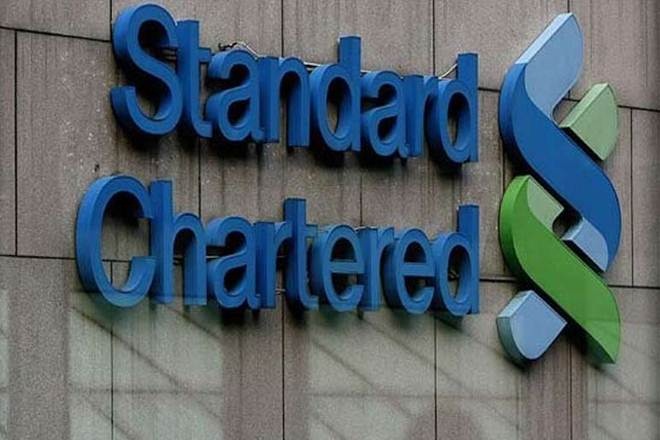Implications of exchange control regulations on investments, loans
According to the framework the RBZ Exchange Control provides an avenue for foreign investment into existing entities and operations in the form of dilutions, mergers, acquisitions, restructurings and rights issues. These investments require specific Exchange Control approvals.
Exchange control regulatory framework in Zimbabwe
In my previous articles on key exchange controls I explained that the exchange control regulatory framework in Zimbabwe includes the following:
Exchange Control Act (Chapter 22:05) (the Act) which is the principal Act and more importantly section 2 on the regulatory powers of the President,
Exchange Control Regulations, 1996 (Statutory Instrument 109 of 1996) (Regulations of 1996), issued by the President in terms of section 2 of the Act,
Exchange Control (General) Order, 1996 (Statutory Instrument 110 of 1996) (General Order), issued by the Reserve Bank of Zimbabwe (RBZ) with the approval of the Minister,
Directives, circulars and orders, issued by the RBZ to supplement the provisions of the General Order, in terms of section 35 of the said Regulations of 1996.
Key exchange control regulations on investments and loans
This article is in addition to the ones I wrote on key exchange control regulations and exports and imports. It focusses on investments and loans and is of interest to many organisations and individuals, especially investors.
The Reserve Bank of Zimbabwe (RBZ), on its website, has what is termed a Foreign Investment and Trade Framework. This article is largely based on that framework. The purpose of that administrative operational framework is to introduce the foreign investors to the various investment promotion bodies existing in Zimbabwe as well as regulations relating to the remittance of dividends, disinvestment proceeds, contraction of offshore loans as well as projects the foreign investors can invest in.
According to the framework the country has three main avenues for foreign investments in Zimbabwe. These include:
Zimbabwe Investment Authority (ZIA), now Zimbabwe Investment Development Agency (ZIDA” through the Zimbabwe Investment Development Agency Act (Chapter 14:37) of 2020 which replaced the Zimbabwe Investment Centre Act (Chapter 14:30), Special Economic Zones Act (Chapter 14:34) and Joint Venture Act (Chapter 22:22).
Zimbabwe Stock Exchange (ZSE).
Reserve Bank of Zimbabwe (“RBZ”) Exchange Control.
Summary of Exchange Controls on foreign investments
Foreign investors willing to invest in any of the sectors in Zimbabwe will enjoy the following:
No restriction on the amount the foreign currency they can bring into the country.
Equity investment can be in cash or capital equipment.
100 percent repatriation of disinvestment proceeds.
100 percent remittance of dividend.
Operation of foreign currency accounts (FCAs).
Foreign investors are allowed to borrow locally and offshore.
Zimbabwe Investment Development Agency
Established in 2020, ZIDA principally handles greenfield (start up or new) projects. Foreign investors require investment licences. ZIDA has a One Stop Investment Services Centre (OSISC) which includes a desk for the RBZ. Exchange control issues will therefore be dealt with expeditiously.
For more details on ZIDA kindly refer to my article of 20 September 2020 titled “Role of Zim Investment and Development Agency” or read the ZIDA Act.
RBZ Exchange Control
According to the framework the RBZ Exchange Control provides an avenue for foreign investment into existing entities and operations in the form of dilutions, mergers, acquisitions, restructurings and rights issues. These investments require specific Exchange Control approvals.
Investment in unlisted companies
Foreign investors may invest in local unlisted companies for existing or brownfield projects. Such investments require RBZ Exchange Control approvals.
Investment on the money market
Foreign investors may subscribe for up to 100 percent of primary issues of bonds and stocks if such investment is financed by inward transfer of foreign currency through normal banking channels. There is no limit on such investments.
Cross border investment
Local companies are allowed to make outward foreign direct investments into foreign or offshore markets subject to meeting Exchange Control criteria. Such cross border investments can be in the form of branches or subsidiaries. Local entities are also allowed to list on external stock exchanges. It is permissible for local companies to establish offshore companies through share swaps. Banks are permitted to enter into derivative transactions such as forward contracts, futures, securitization instruments, swaps, options and other similar financial instruments.
Profit sharing arrangements
Foreign investors are permitted to inject capital into local entities for profit share in sectors such as agriculture, mining operations and manufacturing.
External borrowings
Local companies are allowed to contract offshore loans. All external loans and or trade credits are processed in line with exchange control guidelines on external borrowings. On loan repayments, banks make repayments without seeking prior Exchange Control approval quoting the authority number under which the loan was approved or registered with the RBZ.
Zimbabwe Stock Exchange investments
A foreign investor can invest locally through the ZSE by buying into listed counters from sectors such as mining, agriculture, tourism, services and manufacturing.
The purchase of shares on the ZSE by foreigners must be financed by an inward transfer of foreign currency through normal banking channels. See also section 11 of the Exchange Control (General) Order, 1996 (Statutory Instrument 110 of 1996) for this requirement.
The proceeds from the investment can be fully remitted subject to the deduction of relevant withholding tax. Disinvestment proceeds can be fully remitted.
Ranking of foreign payments on investments and loans
According the RBZ Exchange Control Directive RV175 of 2020, in terms of prioritisation at the foreign currency auction system, disinvestment proceeds, dividend payments, capital remittances for cross border investments and capital remittances from disposal of local investment property fall under Category Two.
Disclaimer: This simplified article is for general information purposes only and does not constitute the writer’s professional advice. Laws on exchange controls change frequently. To be compliant organisations and individuals are advised to consult adequately and seek prior exchange control approvals where necessary. Violations can result in penalties, some which can have far reaching implications.-herald.cl.zw












